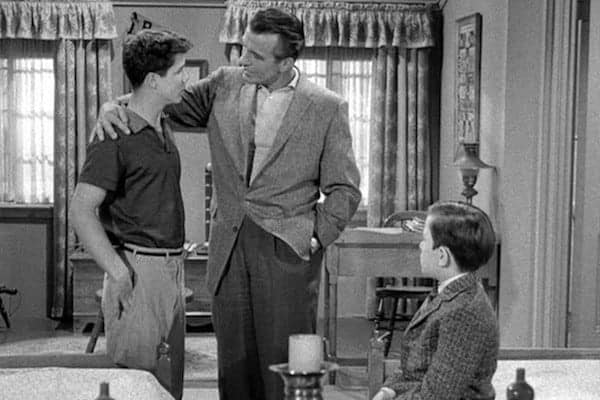As parents, we all take cues from mom and dad in the rearing of our own children. But can we improve as parents based on our perceptions of how we were reared?
For fathers, at least, the answer is yes, according to a new study published in the current edition of the journal Social Science Research.
Using data from the Early Childhood Longitudinal Study, University of Wisconsin-Madison researcher Christina Diaz sampled 4,050 fathers to determine if men’s perception of the fathering they received influences their own parenting behaviors and perceptions of the job they are doing as a dad.
What she learned is that men who experienced “harsh fathering” perceive themselves as being better parents than their own fathers, possibly disrupting a cycle that contributes to socioeconomic inequality.
“Those with less warm fathers consider themselves to be good fathers,” explains Diaz, a UW-Madison graduate student in sociology. “Interestingly, those who experienced warm fathering also perceived themselves to be better fathers.”
Parenting styles, says Diaz, occur on a continuum with “warm fathering” on one end and “harsh fathering” on the other. Warm fathering may be characterized by deeper, more nurturing involvement in a child’s life. “Harsh fathering,” while not necessarily abusive, may encompass a more emotionally distant or strict approach to parenting.
The study provides practical insight, says Diaz, into how fathers engage with their children and, importantly, how parenting skills and styles are passed from generation to generation. Successful parenting, according to the Wisconsin researcher, is linked to a greater likelihood of social and economic benefits accruing to a family. Thus, the study’s results may help inform strategies to improve the likelihood of fathers elevating their parenting skills.
“This research sheds light on the significance of family dynamics and how a legacy of fathering may contribute to inequality” for at-risk children, Diaz concludes in her Social Science Research report.
“The study suggests that some people are able to overcome what we might perceive as a negative experience growing up,” says Diaz. “Men draw on their fathers for their parenting strategy, whether they choose to emulate it or change it.”
The caveat for the study, Diaz acknowledges, is that the fathers in the study have all chosen to be resident parents. Men who do not live with their children are not reflected.
Diaz also notes that her research showed men whose parents had attained higher levels of education assessed their own parenting skills as inferior, suggesting that men with more educated parents have a higher benchmark for what constitutes “good” parenting than those from less advantaged backgrounds.
Interestingly, the study also revealed that men whose fathers were ambivalent — neither harsh nor warm — experienced the most difficulty as parents.
The study results indicate “that men with ambivalent fathers appear to be struggling the most,” says Diaz. “One reason may be because men who perceive their fathers as neither harsh nor warm are unable to develop a strong reactionary approach to parenting.”




I agree that any man is influenced by the role of his father-figure. It needn’t be his biological father. A father figure is a critical role that any boy needs in his life. Most men would turn out to be the same kind of father that they grew up with, due to the guidance that they received. The effect of cases where a child grew up with this so-called ‘harsh fathering’ differs with each case. Some of these men will learn from their fathers’ mistakes and become much better fathers. Some will follow in the footsteps of their fathers and also be ‘harsh’ fathers, because of the example their fathers set to them. In some sad cases the child gets so scarred by this ‘harsh father’ that he may never become a father himself. He may be scared that he will also have a bad influence on a child, as his father had on him. This is an extreme case and probably only happens where violence or extensive absence from the father’s side, is present. As I said earlier a father do not necessarily need to be the biological father. Any father-figure can influence a child’s life. A father-figure can be in the form of a step father, grandfather, adoptive father etc. I think that the reason the men who had extremely good or harsh fathers, turned out to be good fathers, is because they had something to measure themselves to. They push themselves to either become a better father, or to measure up to the good father they had. The men who had mediocre fathers were probably unsure about how to be a good father, as they didn’t really have a good nor a bad example.
U14037905